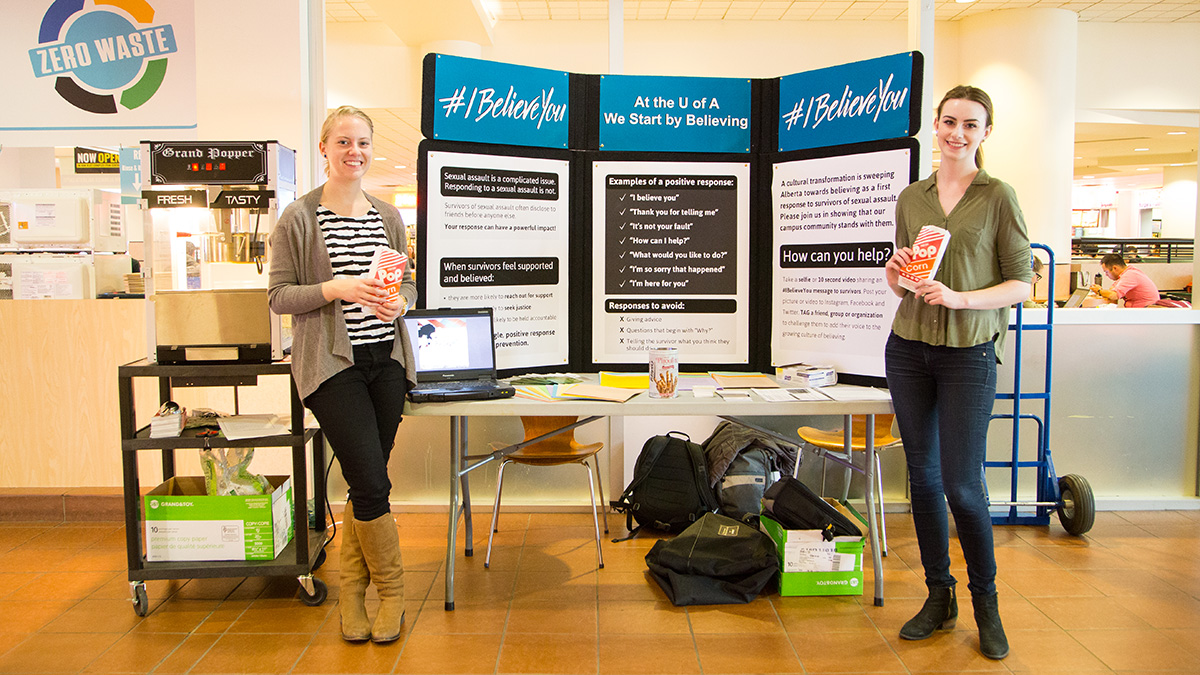University policy on sexual violence policy to enter approval process in 2017
 Joshua Storie
Joshua StorieAccording to a 2001 study, 21 per cent of University of Alberta students reported unwanted sexual contact. More than a decade later, unwanted sexual contact will addressed in its own standalone policy.
The sexual violence policy’s first draft, a seven-page document outlining university’s responsibilities around handling sexual assault, was reviewed on September 22 by a Campus Law Review Committee (CLRC). A final version of the policy is estimated to be ready by the end of December, and will likely enter the approval process in early 2017.
The draft was written in response to a report on sexual violence released in February that said the university needs a “comprehensive policy to tie all of the elements of prevention and response together.”
In the CLRC meeting, Dean of Students André Costopoulos said the policy’s first draft “makes a statement that the university has a pro-survivor approach” to sexual violence. The preliminary policy “strictly prohibits” sexual violence, sexual assault, sexual harassment, stalking, voyeurism, distribution of intimate images, and indecent exposure. It also acknowledges trauma experienced by victims and outlines specific ways in which the university should treat victims, and said the university must provide all disclosers of sexual assault with appropriate academic, recreational, and residence supports to prevent contact with an offender.
Supports for victims haven’t always been provided at the university — in CLRC, member Judith Garber recounted an “administratively-incorrect” case where a victim who was leaving was told they couldn’t make a complaint because they weren’t in the university’s jurisdiction. Frustrated by victim’s inability to seek justice, Garber said the final policy should specify what individuals could make a complaint. Costopoulos replied that the policy will set training standards for university members who may hear disclosures of sexual violence.
The draft declares the university as responsible for educating the community about consent, sexual violence myths, violence prevention, and appropriate responses to sexual violence disclosures. Costopoulos explained that training will happen on three levels: general consent training for across the university, targeted training for department chairs and other administrators, and forensic interview training for individuals working in the reporting process.
“We have to make sure disclosure points are ready to receive disclosures and support survivors, and move if (the discloser) seeks enforcement,” he said.
Francesca Ghossein, SU Vice-President (Student Life) and CLRC member, said that while the draft is still in an early form, she was “really happy the university is taking the initiative” to create a sexual violence policy.
So far, more than 25 stakeholders have been consulted for creating the sexual violence policy, including the Sexual Assault Centre, the Interfraternity Council, the Faculty of Women’s and Gender Studies, and the Students’ Union.
A working group will continue to develop the policy until it goes to approval.




